The Third World: A Massive Shadow Economy
Two decades after Hernando de Soto’s The Mystery of Capital, little has changed about economic systems in the developing world.
It would be hard to find a book that better explains why large portions of the world live as they do than Hernando de Soto’s The Mystery of Capital. The Peruvian economist wrote it in 2000 to describe Third World shadow economies that result from government regulation. The book won critical acclaim from both sides of the political aisle, turning de Soto into a public intellectual. It’s also been a great resource for my own 1.5-year Global South trip, as I see firsthand the sub-optimal economic order de Soto described.
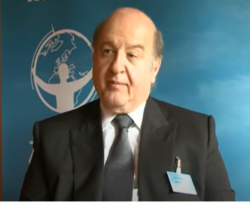
Image Credit: Zermatt Summit Foundation.
(Creative Commons Attribution 3,0 Unported License.)
His argument was that capitalism doesn’t work in the Third World because businesses and governments collude to “capture” the economy, creating protectionist guilds to block competition. Whether someone is a barber, clothing designer or fruit merchant, they must navigate through Kafkaesque licensing.
To demonstrate, de Soto sent his students to a Lima favela to try opening a legal garment shop. To get the license, they had to work several hours a day for nearly 1 year and pay multiple bribes, in a process that cost well above what working-class Peruvians could afford.
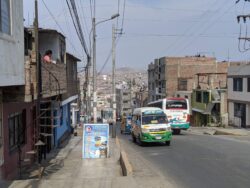
Other Third World countries are like this, confining large portions of the global population into a black market existence. They live in illegal housing, open illegal businesses, get around in illegal transport, and shop for illegal goods and services.
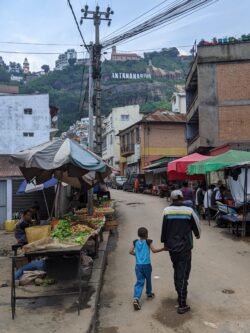 This has terrible ramifications for people, some of which de Soto highlights. They can’t live or do business in properties with formal title, leading to conflicts with neighbors and subjecting them to government sweeps. Lacking those titles, they can’t borrow against their properties to access capital. Government officials can hold their illegality against them, extracting fines, bribes, or property confiscation for non-compliance (see how the Arab Spring started). Further, it’s hard to grow an illegal business, because they won’t attract significant loans, be allowed to advertise, etc.
This has terrible ramifications for people, some of which de Soto highlights. They can’t live or do business in properties with formal title, leading to conflicts with neighbors and subjecting them to government sweeps. Lacking those titles, they can’t borrow against their properties to access capital. Government officials can hold their illegality against them, extracting fines, bribes, or property confiscation for non-compliance (see how the Arab Spring started). Further, it’s hard to grow an illegal business, because they won’t attract significant loans, be allowed to advertise, etc.
When I wrote above that large portions of the world participate in this shadow economy, I mean massive: the International Monetary Fund estimates it at 32% of global GDP. But in Third World countries it’s much larger: 61% in Zimbabwe, 62% in Bolivia, etc.
These aren’t just numbers on a page; travel through the Third World and you see the magnitude of it.
In a typical African city, well over half the population lives in illegal settlements – called compounds, barracks, or shanties depending on the country – where they might enjoy a fraction of the typical government service provision. They operate businesses in every last nook and cranny of the urban landscape: on roadsides, below underpasses, next to gas station pumps, along train tracks – everywhere. Even formal areas, such as downtown centers, are filled with “tent retail”. One encounters while walking the streets a massive community of sole proprietors; people who have business cards and are offering to be tour guides, tech help, currency hawkers, or more, but who present no formal licensing.
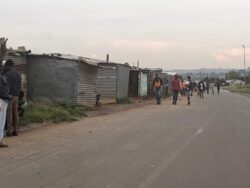
This is not entirely bad: because there are zero barriers to entry, there’s a wide array of low-price goods and services on Third World streets. Food in particular is brought in fresh each morning from local farms, in a logistics process that requires seemingly no government oversight.
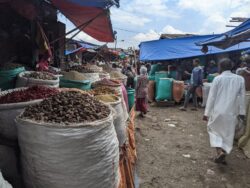
But overall, people remain impoverished due to this paradigm – echoing a world-historical struggle that has lasted for centuries. One reason people left medieval Europe for the New World was the monopolistic behavior of merchant guilds. The rest is history, as America rose while European economies stagnated (although the U.S.’ occupational licensing regimes now reflect that old order). Similarly, modern migration from developing into developed countries is driven partly by people looking to escape the curse of informality for more stable legal systems.
Third World countries can begin to reverse this by reforming their own systems – something that there is admittedly little political incentive to do. Technology can ease that process; if Estonia can store its land titles in a web database, maybe the same can be done in informal slums. But absent that, the problem de Soto identified at the beginning of the 21st century will still exist by the end of it.
Except where otherwise noted, all images credited to Scott Beyer.
Catalyst articles by Scott Beyer | Full Biography and Publications
